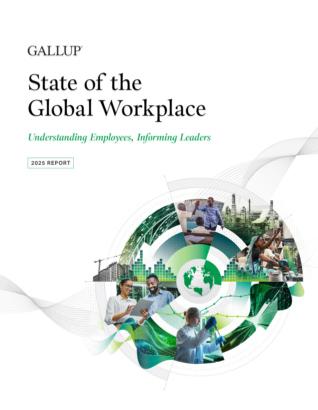Workplace Insights
Our latest analytics and advice on workplace issues that matter most.
Featured Insights
The Remote Work Paradox: Higher Engagement, Lower Wellbeing
Remote workers are more engaged but also isolated, stressed and feeling emotional strain. Autonomy and technology may be to blame.

Featured Report
State of the Global Workplace: 2025 Report
Get insights on employees around the world — including engagement, wellbeing, managers and more — in our latest annual report.
.
